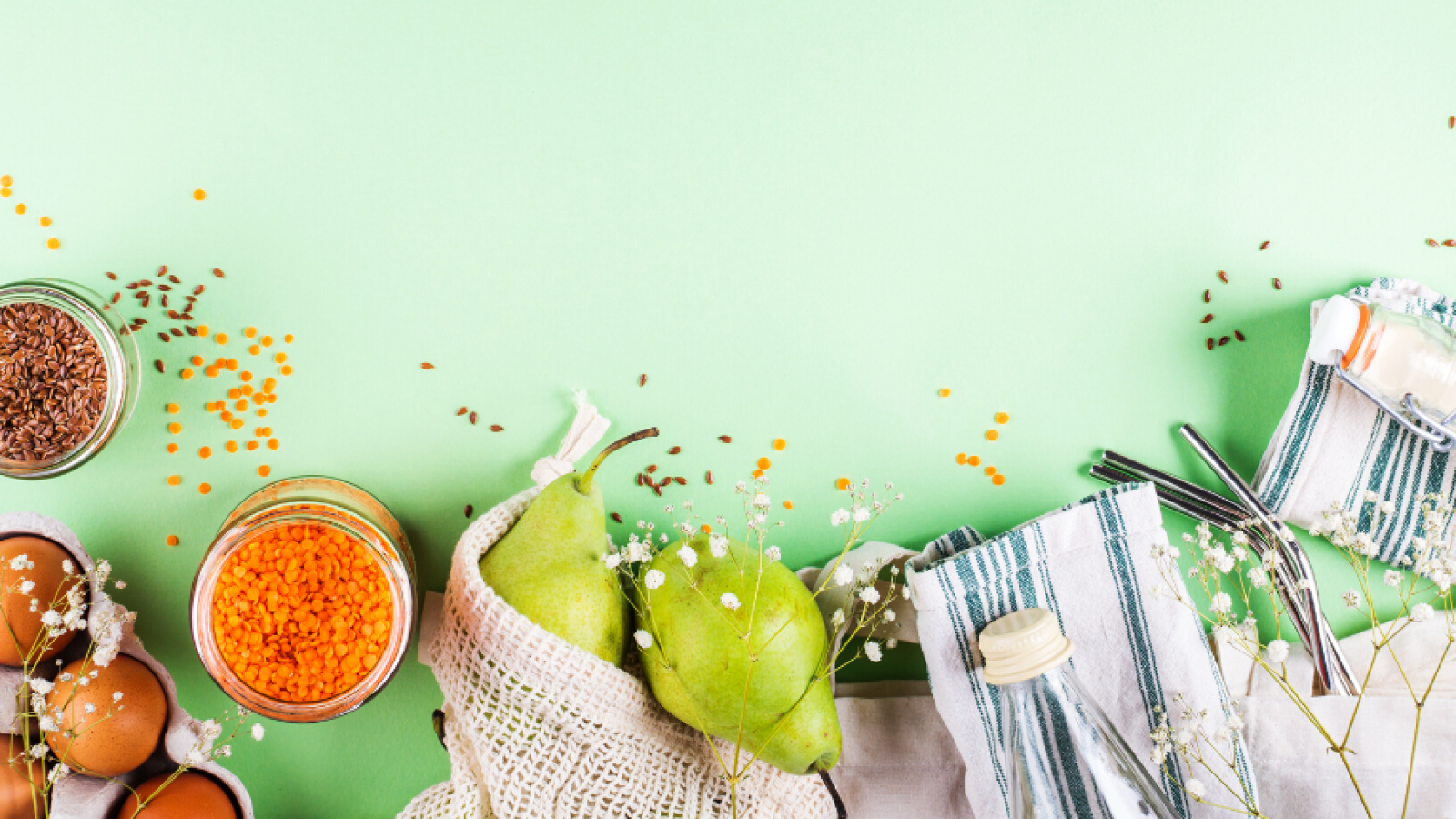By Jen Walling | IEC Executive Director
When so many of us are spending more time than usual at home due to the novel corona virus, Team IEC is sharing some of our favorite home sustainability tips and resources to help give a boost to our planet and your pocketbook.
If you’ve had a chance to check out our blog post about the most important thing you can do to help save our planet, you already know that one of our top tips is to build relationships with your neighbors. You’ll have to read our post to find out why, but in the meantime, now is a great time to check in on your neighbors, especially those living alone– from a safe distance, of course. So far, members of our team at IEC have been able to offer a much-needed toilet paper rescue to one neighbor and received surplus bananas and tofu from others.
Additionally, IEC has been hosting a daily Lunch & Learn webinar series on various environmental topics as a way to build connections in our community and share knowledge during this time apart. All of the discussions are recorded and posted on our Youtube channel. If you are interested in home sustainability tips, Kay McKeen with our partner SCARCE lead an in-depth and amazing discussion on home sustainability during a previous Lunch & Learn. You can check out the recording here.
IEC’s Top Stay-at-Home Sustainability Tips:
1) Don’t flush disinfecting wipes!
It’s no surprise that water reclamation plants, like those managed by the Metropolitan Water Reclamation District of Greater Chicago are seeing a rise in the number of disinfecting wipes stuck to the screens that filter out debris during the first steps of the wastewater treatment process. Even wipes labeled as “flushable” can clog pipes and interrupt or damage equipment, resulting in potential sewer overflows and backups. This includes pipes inside your own home.
2) Buy directly from local Illinois farmers.
The closure of restaurants, farmers markets and other local businesses has disrupted the supply chains of many local food farmers. These local, trusted farmers play a critical role in producing and distributing quality, healthy foods, and they could use your support. Use the Buy Fresh Buy Local guide, organized by IEC affiliate Illinois Stewardship Alliance, to order directly from local farmers. In Chicago, Green City Market has an online ordering site that we recommend.
3) Now’s the right time to audit the energy usage at your home.
Check out which bulbs need to be replaced with LEDs and grab some while out on your shopping run. Our partners at the Citizens Utility Board provide amazing resources to help you save energy and lower your utility bills year round. Check out this great how-to video on submitting your bills to their free, virtual utility bill clinic.
4) Adopt or foster a pet in need.
Now is a great time to adopt a pet to reduce the potential strain on shelters or to foster in case shelters start receiving an increase in foster care requests for pets of seriously ill or hospitalized people. Please reach out to shelters and rescue groups in your area for more information. The Humane Society has compiled great information on this topic.
5) Limit water usage during rainy days.
Gloomy and rainy Spring days may have you thinking about household chores, but give consideration to the impacts on our environment. Heavy rain puts pressure on our water infrastructure and sewer system–and can worsen flooding and even cause sewer overflows into our waterways. Doing laundry or running your dishwasher can exacerbate these issues. While you’re at home, wait another day!
6) Inquire about the reusable bag policy at your grocer.
Many stores are not permitting reusable bags because workers are concerned about touching items potentially contaminated. If you’d like to go without a plastic bag, opt for self-checkout lines while we’re practicing social distance or ask if workers will put the items back in the cart and bag your groceries in your reusable bags yourself outside at your car, bike or before your walk home. It’s important to support our grocery workers and other high risk employees at this time, so the most important environmental tip is to be kind and generous to the workers that are helping you at this time. If a store is requiring the use of plastic bags, remember that it is for a temporary period of time.
7) Make your own mask.
T-shirts, bandanas and other clothing items can be used to make cloth masks from items you already own at home. The CDC has a helpful guide.
8) Grow your own herbs.
Save money, plastic bags and possibly a trip to the store by growing your own herbs. You can regrow parsley, basil, cilantro, thyme, mint and a few others from food scraps and water. Here’s a guide to start your mini garden. Check out the recording from our Lunch & Learn series on growing your own food if you are a newbie and interested in learning more.

